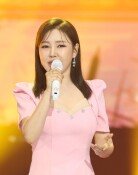Yoo Il-ho chooses to complete reform drive instead of parliamentary seat
Yoo Il-ho chooses to complete reform drive instead of parliamentary seat
Posted December. 22, 2015 10:26,
The highlight of the cabinet shuffling announced on Monday was Yoo Il-ho, the candidate for the deputy prime minister and finance minister. Yoo resigned from the position as minister of land, infrastructure, and transportation on Nov. 11 and was called to serve the public office by the president only in a month.
When he was appointed as the transportation minister as an incumbent congressman in March, pundits said he might be appointed as deputy prime minister. After he left the office, however, the observation gained currency that it was not likely that he would not be asked to join the cabinet in merely one month after resignation. Yoo himself strongly expressed his will to run for the 20th general elections, showing his plan to win his third parliamentary term in Songpa-gu. Joining the cabinet, however, would mean that he would give up on the general elections.
The core officials of the ruling party say that President Park Geun-hye has chosen Yoo since the president put an emphasis on her own trust in the candidate, his vast economic knowledge, the sense of initiative to press ahead with the four major reform agendas, and the possibility of passing confirmation hearings. In particular, it appears that President Park has decided that she would need Yoos capacity to handle state-affairs in order to strongly push for passing some of the controversial parliamentary bills such as the laws regarding labor reform and the framework act on the advancement of service industry.
Yoo is the only son of Yoo Chi-song, the former head of the Democratic Korea Party. He was given the opportunity to serve as chief secretary of the then president-elect for the Commission of the Presidential Transition. It is reported that President Parks trust in Yoo grew only greater as he served as minister of land and transportation. With the doctorate in economics, Yoo is said to have ample theoretical knowledge and practical experiences.
Upon the appointment, Yoo talked about the current economic condition. "There are both similarities to and differences from the situation we faced in the Asian fiscal crisis in 1997," he emphasized the need to stay vigilant. As to the policy direction, Yoo accentuated the importance of maintaining the tack of the economic policy of the current administration. The message is interpreted as his will to stick to the three major policy directions that are structural reform, economic revitalization, and management of risks in and out of the country.
With the choice of personnel, it appears that a continued effort will be made to improve the flexibility of labor market through labor reform and introducing an education system geared towards meeting industrial demand through educational reforms. In addition, an earnest effort is likely to be made to implement a preemptive corporate restructuring to fend off both internal and exterior risks.
will71@donga.com



![[사설]계엄 때보다 낮은 지지율 17%… 국힘의 존재 이유를 묻는 민심](https://dimg.donga.com/c/138/175/90/1/wps/NEWS/IMAGE/2026/02/26/133433702.1.jpg)



